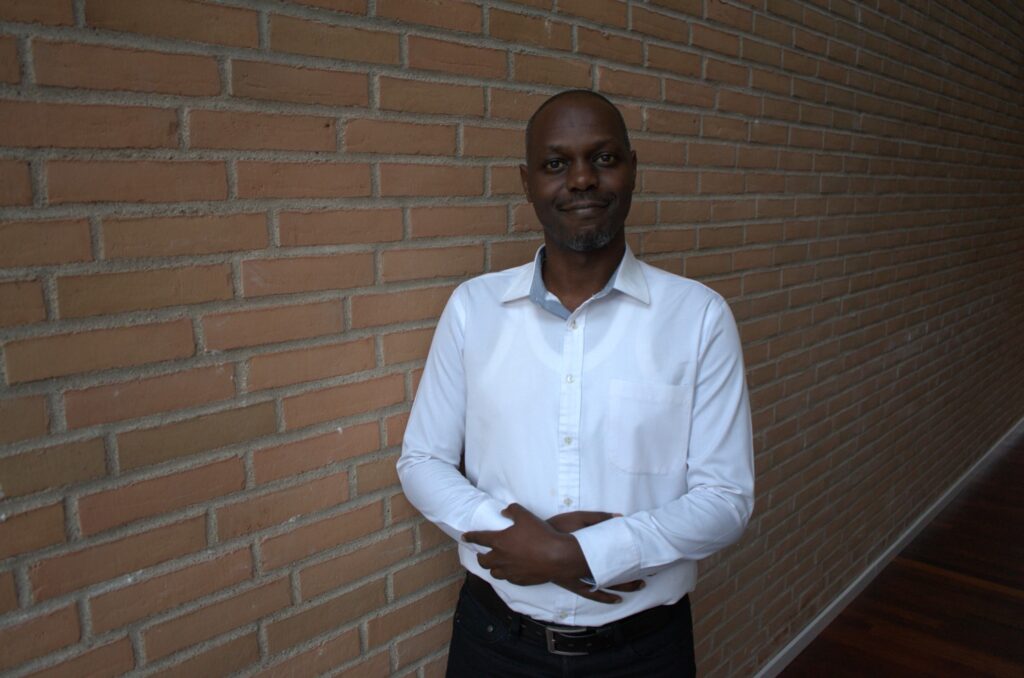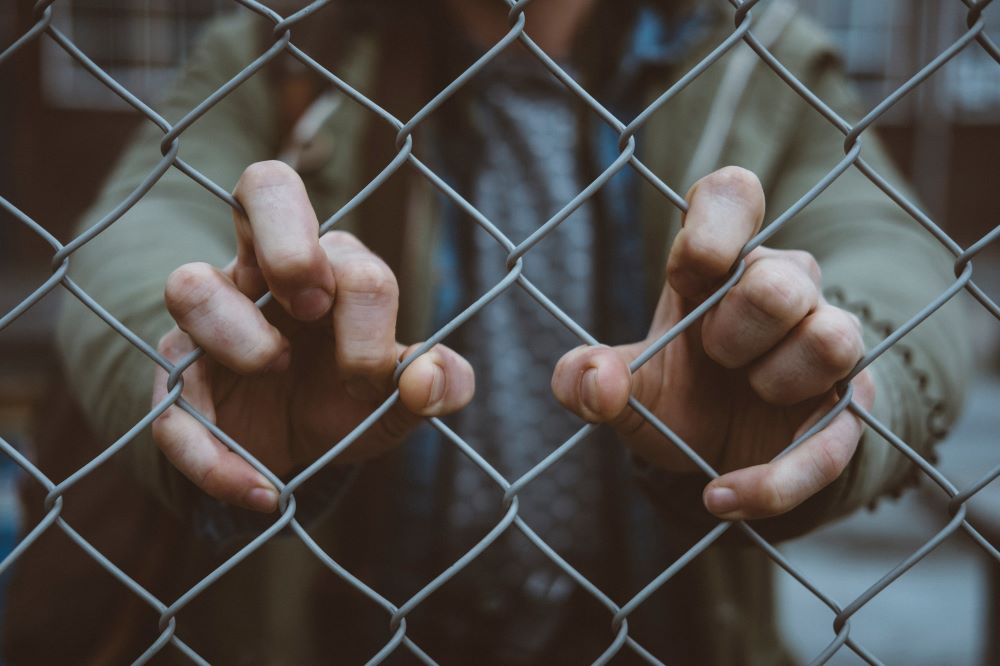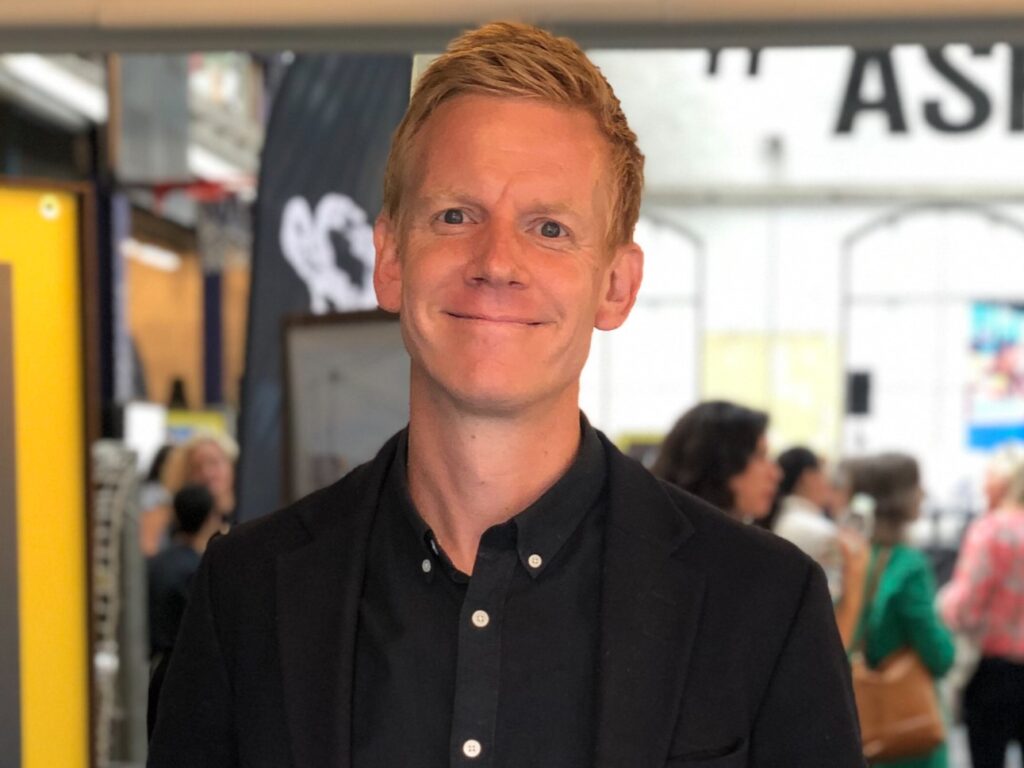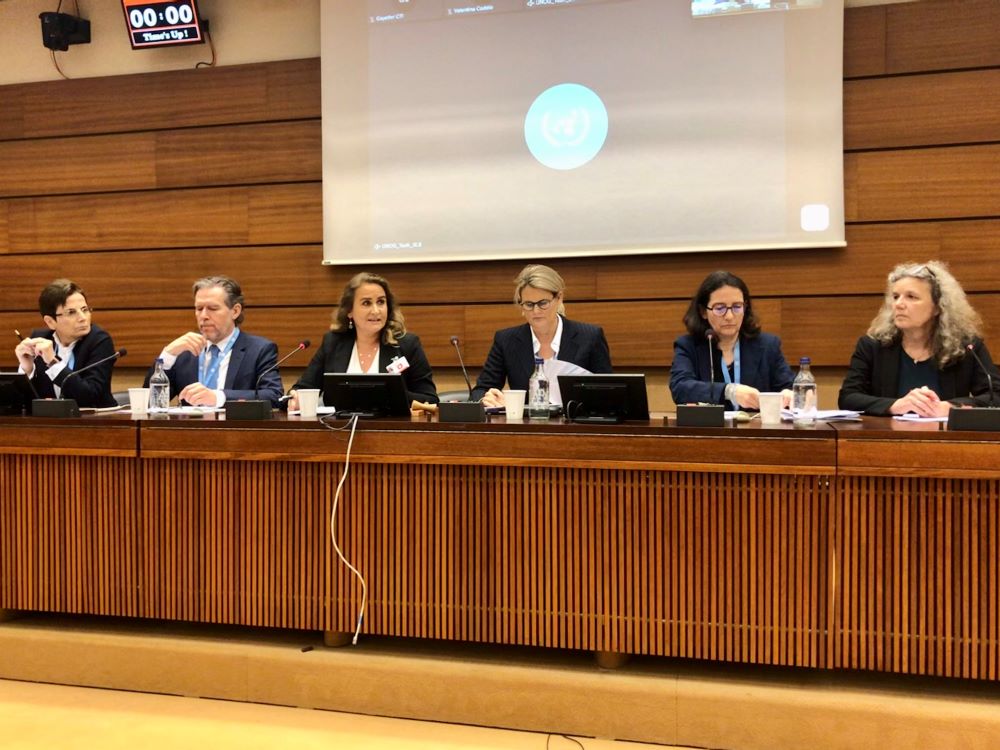DIGNITY’s Ugandan partner ACTV routinely engages in a constructive dialogue about prevention of torture with the Government
Torture is absolutely and strictly prohibited by laws in Uganda. Yet, the African Centre for Treatment and Rehabilitation of Torture Victims (ACTV) in Uganda each year receives an average of 1,000 testimonies from Ugandans who allege to have been subjected to acts of torture and ill-treatment.
This was the paradoxical background on which Alex Kigoye, acting Head of Programmes at ACTV, flew to Geneva earlier this month to present ACTV’s alternative report on the situation of torture prevention and accountability when Uganda was up for review at the UN Committee against Torture.
While in Europe, Alex Kigoye also took time to visit ACTV’s cooperation partner DIGNITY in Copenhagen where we interviewed him.
»Torture remains the most violated human right in Uganda according to the Uganda Human Rights Commission, which is a government institution mandated to investigate all human rights violations«, says Alex Kigoye.
The problem in Uganda is not a lack of legislation. Alex Kigoye points out that the country has »very good laws on torture«. The East African nation was one of the first on the continent to ratify the UN Convention against Torture. Articles 24 and 44 of the Ugandan Constitution prohibit torture. Uganda made the Convention against Torture part of national legislation by enacting the Prevention and Provision of Torture Act of 2012 and its regulations in 2017.
»All of this shows that we have a very good legal system. But in practice, torture remains a problem«, says Alex Kigoye.
Lack of capacity
One of the issues he and ACTV raised in their alternative report to the UN Committee is the lack of capacity to investigate, document, and prosecute cases of torture.
»There is a good law and good regulations that operationalise the law. But the institutions that are supposed to utilise them, the police, has not fully adopted the law and the regulations in their work. And that limits the possibilities of prosecuting cases of torture«, says Alex Kigoye.
One of the current problems is that the police does not use a specific form – the so-called Form 4 – which is designed specifically for medico-legal documentation of torture.
»This may be one reason why you rarely find cases of torture when you read the annual crime reports from the police«, says Alex Kigoye.
In the fight against torture in Uganda ACTV encounters several challenges. Some victims are not aware that what happened to them was torture and that they can report it. Others fear to report torture.
»When it is a case against a police officer or a senior government official there seems to be a lack of willingness to report or pursue the case. So sometimes it ends there without holding perpetrators accountable«, says Alex Kigoye.
Hard work to get compensation money
Torture victims are entitled to compensation. Such compensations can be awarded by the Uganda Human Rights Commission or courts of law.
»But the challenge lies in accessing the compensation awards«, explains Alex Kigoye.
»In average, it takes a victim five to seven years to receive compensation. Torture survivors often go through a lot of back and forth and get frustrated in the process«, he says.
One being awarded compensation for the violation of their right of freedom from torture in Uganda doesn’t mean that you actually get the money in your hand. The current policy is that the institution responsible for the torture is the one that has to pay the awards. For example, if the police have committed an act of torture, the torture survivor has to go to the police and ask for the compensation they have already, in principle, been awarded, and this has not been effective.
»Our recommendation in the alternative report is to create a torture survivors’ compensation fund to avoid the challenge of delayed compensation«, says Alex Kigoye.
ACTV has its main offices with medical centres in Kampala in central Uganda and Gulu in the north. All survivors, who need rehabilitation, have to go to one of these two medical centres. ACTV also has satellite offices in Karamoja in north-eastern Uganda and Kasese in the western part of the country. On top of that, the organisation does outreach work in prisons in all parts of Uganda.
But the services provided to torture survivors still leave something to be desired, says Alex Kigoye. He points out that general hospitals do not cater for the specific needs of torture survivors and that ACTV’s work is not funded by the Ugandan State but by other donors. Due to this, ACTV recommends a national rehabilitation policy for victims of torture and ill-treatment.
Uganda should ratify OPCAT
Uganda ratified the Convention against Torture. However, it has not ratified the Optional Protocol to the Convention against Torture (OPCAT). Ratifying OPCAT would make it mandatory for Uganda to establish a National Preventive Mechanism (NPM) with unhindered access to all institutions where persons are deprived of their liberty. Alex Kigoye is full of praise for the »wonderful job« the Ugandan prisons have done in reducing the number of torture cases, he says.
»But the OPCAT and a National Preventive Mechanism would give the opportunity of frequent monitoring of places of detention. It would make it possible to tighten the levels of torture prevention and accountability. It would also give access to other places of detention beside the prisons. At the moment only the Uganda Human Rights Commission has unlimited access and can anytime visit places of detention. Other institutions have to first seek permission to have that access. A National Preventive Mechanism would be really important to us«, explains Alex Kigoye.
ACTV’s approach to the problems is one of constructive and transformative dialogue.
»We can’t work without the Government. We collaborate and work in a transformative way. We collect evidence and engage with the State, showing them that torture is a problem and that the State has a responsibility to address that problem. Constructive dialogue can yield something. We have used it before, and we have achieved small, small steps. We can’t have everything at once«.
The process at the Committee against Torture is also a constructive dialogue, he adds:
»Our alternative report was a contribution that made it possible for the UN Committee against Torture to engage constructively with the State. There was a constructive discussion. That is what we believe in. Even if the State adopts only one recommendation, it is a step in a positive direction. And then we continue advocating for more. That is how we work«, says Alex Kigoye.




